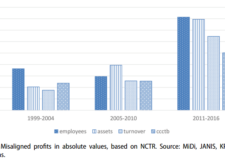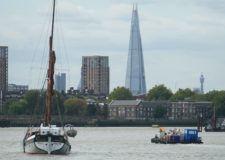After four days and repeated statements and clarifications, the UK Prime Minister David Cameron has stated he did indeed hold shares in his father’s Panama-based trust, Blairmore.
Disposal of shares
Cameron made two main points in his defence. First, that he paid all the relevant tax when the shares were sold. We have no reason to doubt this, and would certainly assume this was done appropriately.
There is a side question of whether the disposal should have been reported in the parliamentary register of interests; and it seems an investigation may now follow.
The exchange controls defence
The second point of Cameron’s defence is that Blairmore wasn’t itself motivated by tax avoidance. The Guardian reported it thus:
He also said it was a misconception that Blairmore had been set up to avoid tax. “It wasn’t,” he said. “It was set up after exchange controls went so that people who wanted to invest in dollar denominated shares and companies could do so.”
This is flat wrong. Or rather, the line quoted is chronologically accurate; but about 180 degrees off in terms of meaning.
Blairmore did follow the sweeping 1979 removal of exchange controls, and that mean that people who wanted to hold dollar-denominated assets could easily do so. But the claim that Blairmore was set up to take advantage of the Thatcher’s exchange control liberalisation makes no sense at all, because that change precisely made it possible to do what Blairmore did from inside the UK.
Blairmore, offshore
So why go offshore? Perhaps for genuine reasons – access to skilled investment specialists, for example. But Blairmore went offshore in the least tangible way possible. Incorporated in Panama but based in the Bahamas, Blairmore’s pitch to investors was predicated on its not becoming liable to UK tax.
But as the Guardian reported when it first broke the story of Blairmore’s involvement in the Panama Papers:
In order to avoid UK tax, his venture had to be managed and controlled from abroad. A team of six other directors from Switzerland and the Bahamas was recruited, to ensure that a majority of the board was based outside Britain. However, the paper trail suggests this was a conjuring trick, albeit one tolerated by the law. Board meetings were held every year in Nassau and Switzerland, often in the five-star Hotel Beau-Rivage in Geneva. While the Europeans regularly jetted out to the Caribbean, there is little evidence of travel in the opposite direction, raising questions about how much the Bahamas directors contributed to strategy and decision making.
[…]
In reality, according to the documents, big investment decisions appear to have been taken in the UK. Strategy was seemingly discussed in London where the investment management firm Smith & Williamson and five of the directors including Cameron were based.
So it seems likely, indeed, that Blairmore may have been offshore for the most obvious reason: not to put its actual activity somewhere else, but – contradicting David Cameron – for tax (avoidance) purposes. As former tax inspector Richard Brooks told the Guardian:
“If HMRC had seen the papers they would have had some very serious questions. The clear intention for Blairmore was to avoid becoming UK tax resident and the test for this, even in 2006, is the location of the central management and control.
“This means where the key business decisions are taken. The evidence here suggests in this period they weren’t taken outside the UK, in which case it is hard to see how the company was not managed and controlled, and therefore tax resident, in the UK at the time.”
So Blairmore’s avoidance might well have shaded into something less successful if challenged.
So what?
So it seems highly likely that Cameron was wrong to say Blairmore was not set up for tax avoidance. And that would mean in turn that his own returns from holding shares in Blairmore would have been artificially inflated in value, by Blairmore’s reduced taxes.
So the question then becomes one of whether the Prime Minister benefited from Blairmore’s tax avoidance. Which might perhaps explain the reluctance to reveal any details.






Leave a Reply